|
29th July 2021 Thursday is here and it's time for some gaming on Board Game Arena. If racing isn't your thing but rolling is, then maybe you'll prefer Roll for The Galaxy to the excellent Race for The Galaxy. Roll for The Galaxy is a follow up to the aforementioned game and both are thematically similar. Both games have the same 5 phases (Although not in the same order!) and both are about are about building settlements and developments to create an engine building tableau in order to win. Mechanically, there are numerous differences though. Roll for The Galaxy uses lots of different dice and dice rolling to manage phases as well as provide workers to build with. Gone is the card-based economy of Roll for the Galaxy. What's in a game?
All the games tiles are made of sturdy grey board and are suitably thick. The currency meeple is a nice little wooden token that matches colour with a dice cup, speaking of which, the cups are made of pretty standard plastic but are easily tough enough to stand up to repeated use. Finally, the victory tokens are made of standard card token chips and are probably the most average component in the game, which is to say the components are all good quality. Anyone familiar with Race for The Galaxy will recognise the art style on the tiles. How much of it is new and how much is recycled from Race, I couldn't say. Ultimately though, it's fairly good artwork. How's it play? Setup
Roll for The Galaxy is played out over 5 different steps, each player carries out each step simultaneously.
Endgame Play progresses until either a player has completed the 12th tile in their tableau, or the supply of victory point tokens has been depleted. Players now calculate the total cost/value of completed tiles in their tableau and victory points accumulated, furthermore; some developments will have criteria that score players additional points. All points are tallied, highest score wins. Overall
Players of Race for The Galaxy (Like me!) will recognise a lot of familiar theme and ideas in Roll for The Galaxy, it's quite clever how this has been achieved, although there are some differences. For example; in Race for The Galaxy, a player's hand is also their currency, in Roll for the Galaxy though, players have no hand. The game introduces a currency track to replicate this and at first I thought it felt a little superfluous, after all, currency is only used to recover dice from the Citizenry space, then I realised without the need for currency, the decision to choose between a game tile and currency in the Explore phase becomes unnecessary as does the decision to to choose between victory points and currency in the Ship phase. There is no military score, instead military dice provide extra opportunities to develop and settle. Curiously, Roll for The Galaxy swaps the Produce and Ship/Consume phases round and trading is now the 5th and final phase. I guess that this decision was taken to make it a little easier to players to produce and then trade goods in the same round? Additionally, because Roll for the Galaxy is a 5-player game, it possible for all phases to be activated. It's never been possible to activate more than 4 phases in Race for The Galaxy. Finally; constructing developments and settlements is quite different: In Race for The Galaxy, it's a all-or-nothing affair, either you have the cards to pay for a development/settlement or you don't. Roll for The Galaxy allows player to incrementally pay for them, however, this ties up dice in construction, as a consequence players will have less dice and therefore less choices When rolling at the start of the round. But enough of talking about another game, let's talk about Roll for The Galaxy. In Roll for The Galaxy, players will be to some extent at the mercy of the dice they roll at the start of a round. If you're looking to finish constructing a settlement and you get no settlement dice - tough luck! Obviously there are rules to mitigate some of this and furthermore, correct usage of the different types of dice (Provided you get hold of them.) at the right time can be helpful and skew results in a player's favour. But on occasion, players will have to react to dice rolls that just don't go their way! Adaptation is the key here. Even so, it can prove frustrating at times when you can't do what you want to. Additionally, acquiring certain types of dice which may push players into strategies they hadn't considered before, Another aspect to remember when assigning dice, is to pay attention to what other players have been doing, successfully anticipating another player's choice of action can prove useful and provide extra actions to spend. Players must balance the need to acquire developments and settlements with the need to produce and trade, this also means balancing the use of limited resources to construct improvements with the need to have actions. Building an engine is vital, getting the special abilities provided is important, but so is acquiring extra dice to roll, which gives players more choices elsewhere. Players will want to do all of this as efficiently as possible to outpace their opponents In short; Roll for The Galaxy always provides players with meaningful decisions. I'd happily play Roll for The Galaxy again in the future, but given the choice between this and Race for The Galaxy, I'd choose the latter every time. Roll for the Galaxy is a good and fun game but I sometimes find the randomness off putting. If dice games are your thing over card games for some reason, Roll for the Galaxy is definitely worth a look.
0 Comments
Leave a Reply. |
AuthorI play, I paint. Archives
March 2024
Categories
All
|

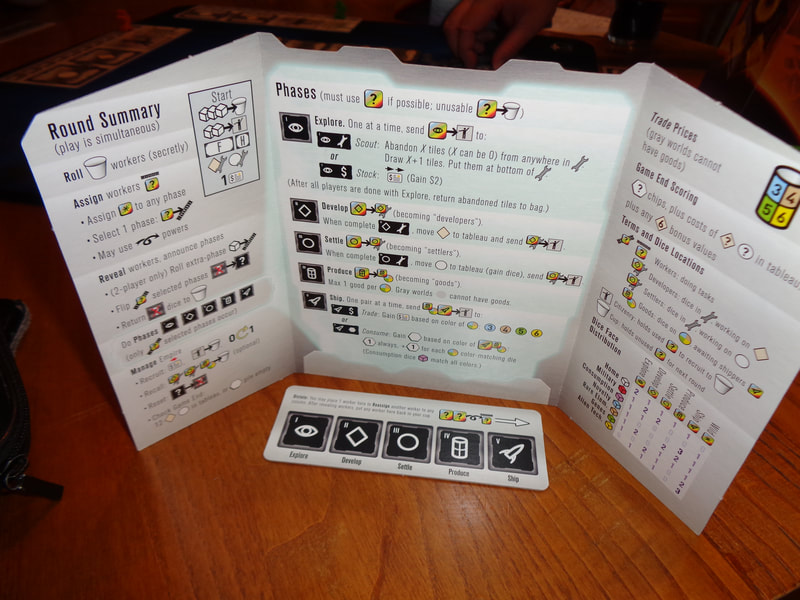
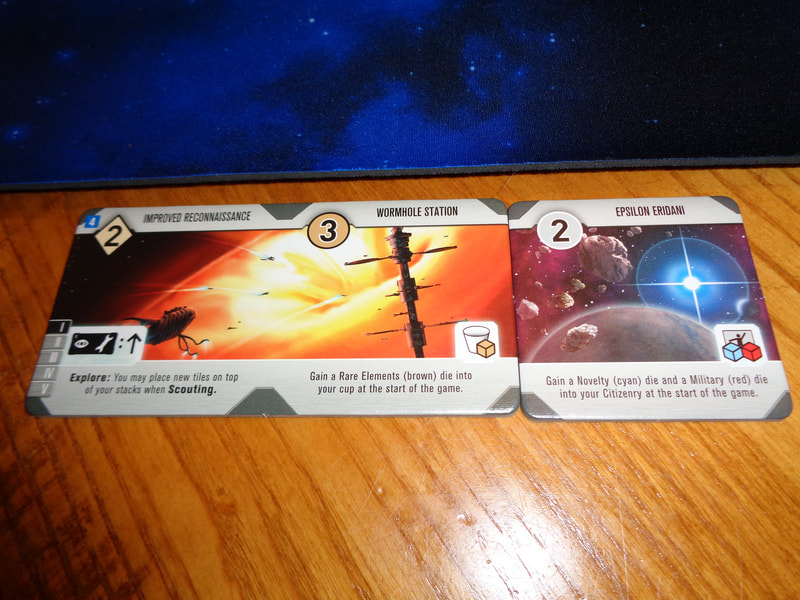
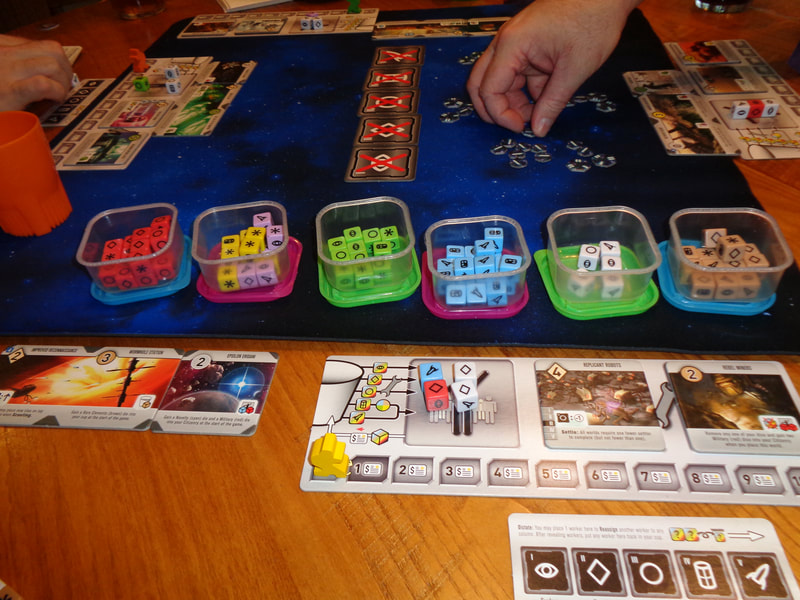
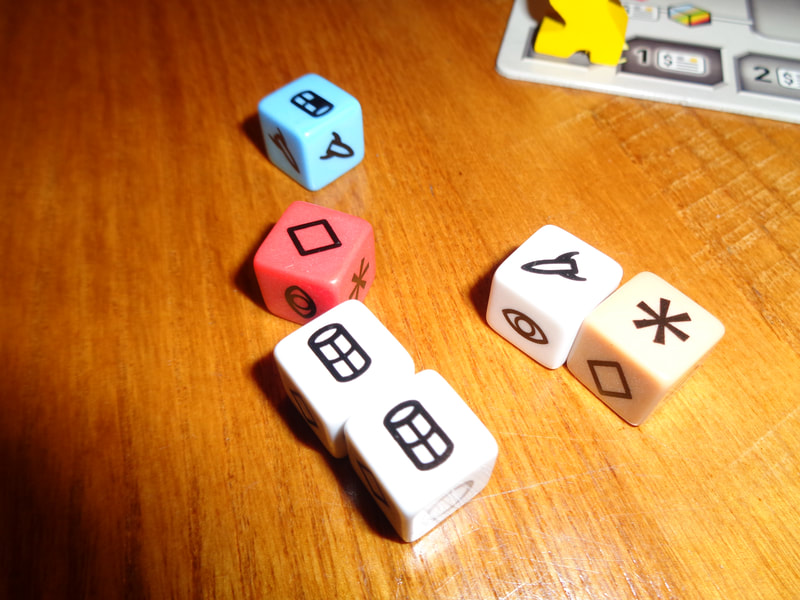
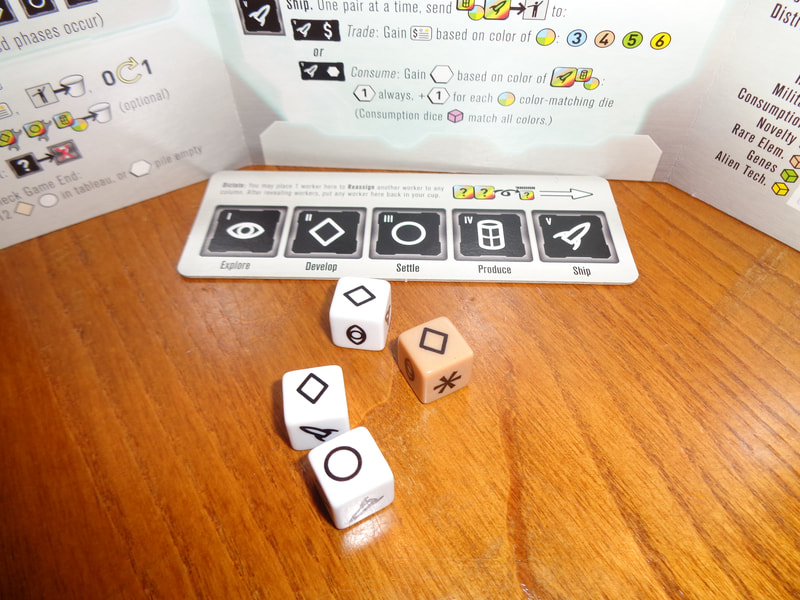
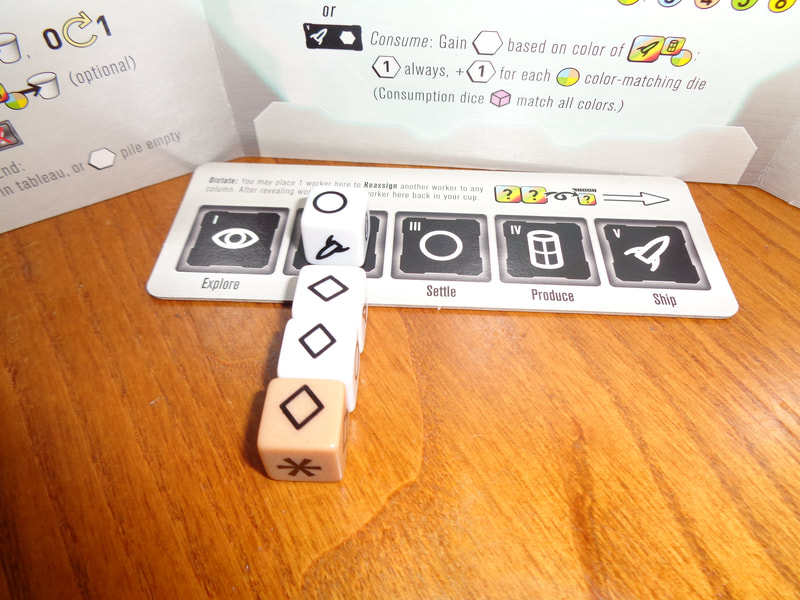
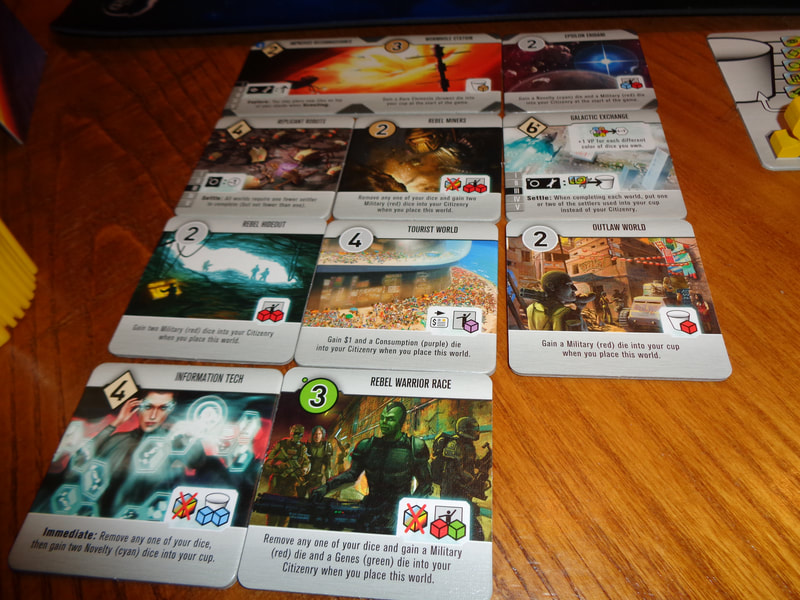
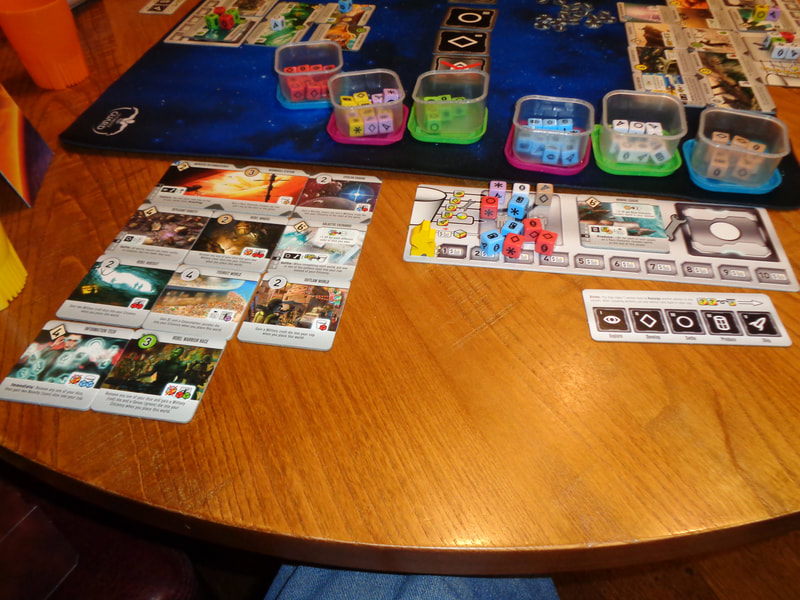
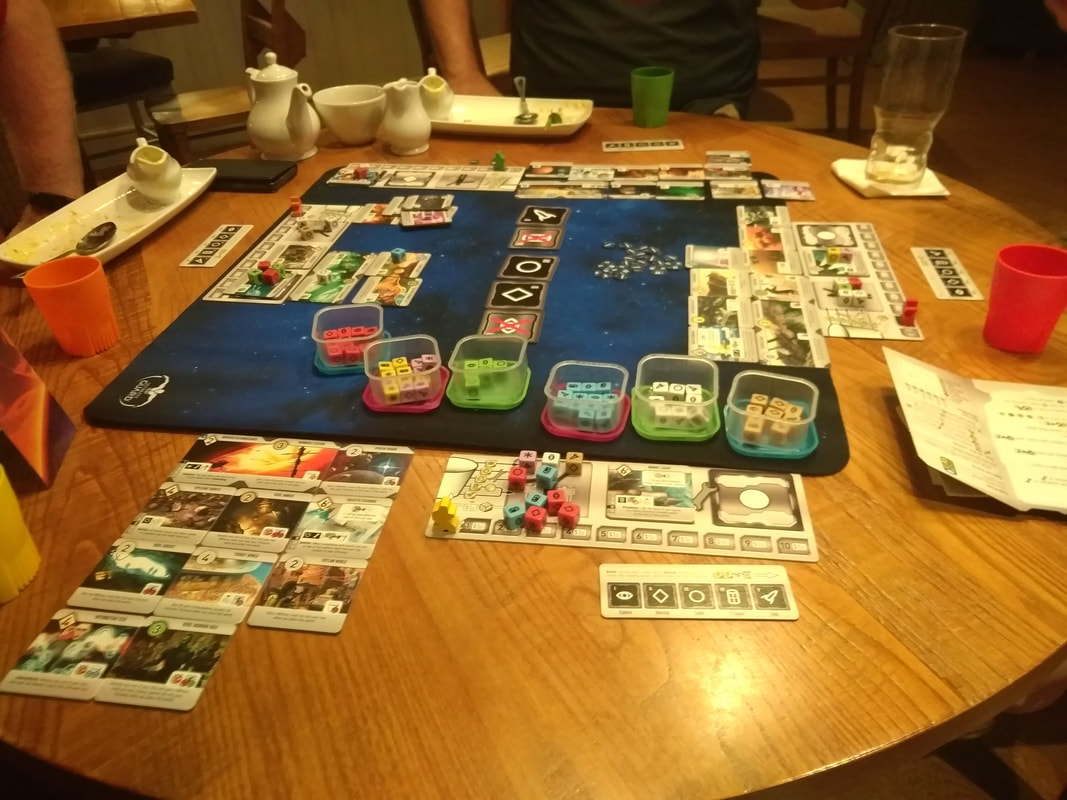
 RSS Feed
RSS Feed
